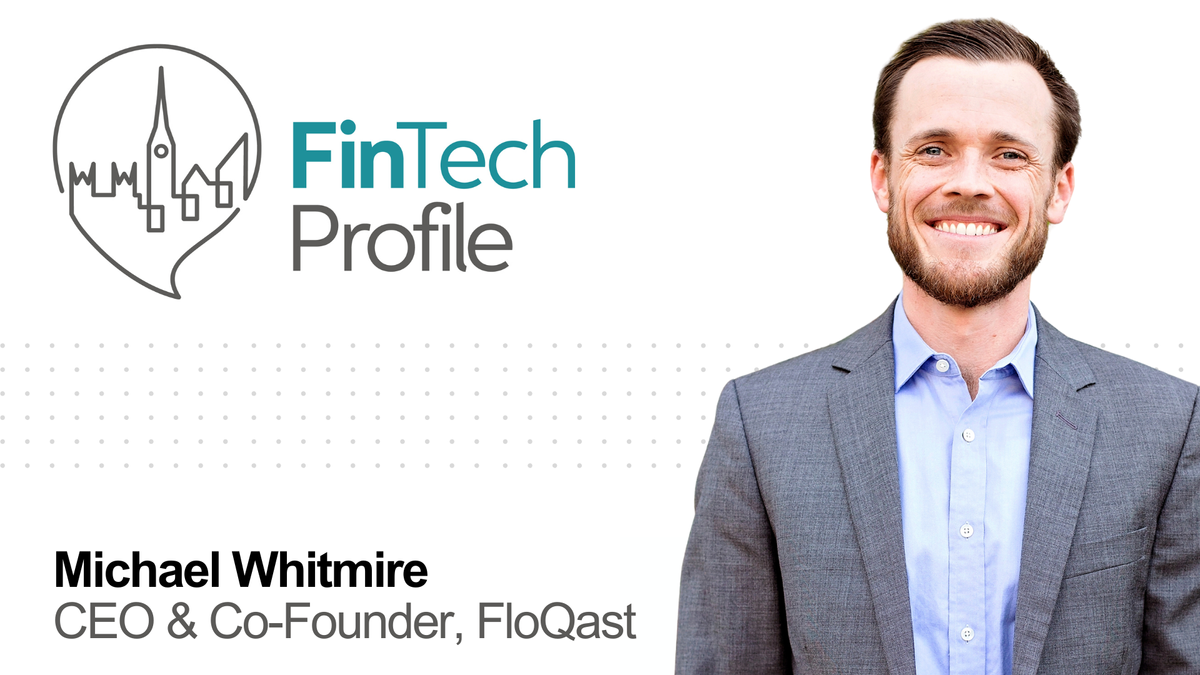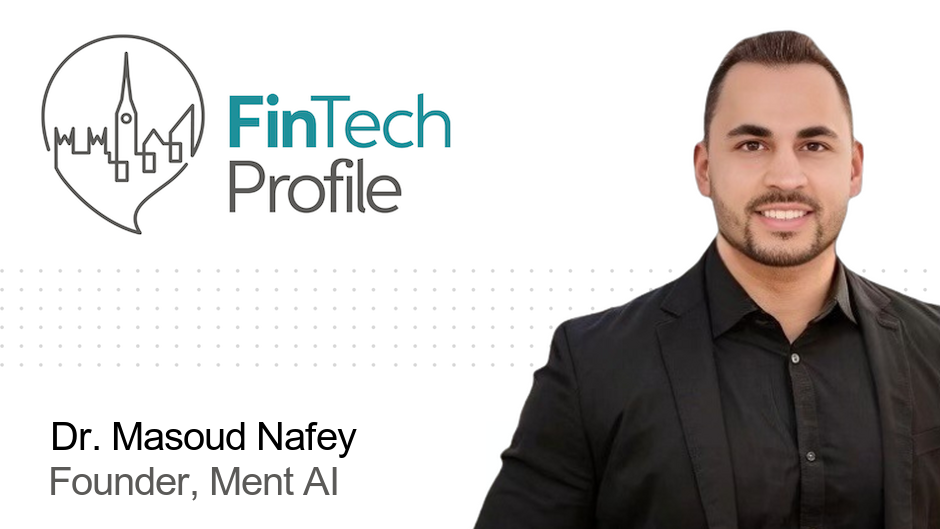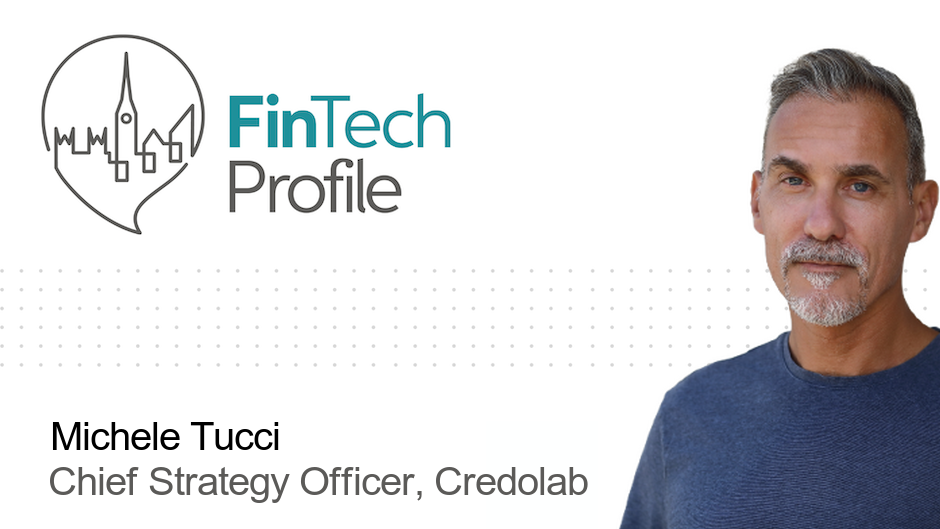Michael Whitmire, CEO & Co-Founder, FloQast

Today we're meeting Mike Whitmire, CEO & Co-Founder of FloQast, the Accounting Transformation Platform created by accountants, for accountants.
Over to you Mike - my questions are in bold:
Who are you and what's your background?
My name’s Mike Whitmire and I’m the CEO and co-founder of FloQast, an Accounting Transformation Platform created by accountants for accountants. I graduated in accounting and went on to work as an accountant at Cornerstone OnDemand during a critical phase in the company’s growth. I worked my way up through the business and helped prepare it for its IPO as a senior accountant. That was a really great chance to gain a lot of invaluable insights into aligning strategy and operations. It was also the moment when I began to realise the need for more efficient processes that could lift some of the manual, repetitive tasks from the shoulders of accounting and finance teams.
The experience inspired me to see how accounting could be a driver of business success. It really exposed me to the inefficiencies and challenges accountants often face, and the understanding that when your core processes and insights are running well, your accounting division has the time to give truly transformative input into the way the business works.
And that’s where the idea for FloQast came from. I founded the company with our COO Chris Sluty and CTO Cullen Zandstra, and we got our start in the Amplify.LA accelerator programme in 2013. After our Series D funding round in 2021, we became a ‘unicorn’ with a $1.2 billion valuation. Last year we completed our Series E funding round and have recently achieved the milestone of over 3,000 customers.

What is your job title and what are your general responsibilities?
I’m the co-founder and CEO of FloQast, but I was a senior accountant when I started the company. Being CEO was new to me, and I made a conscious decision to lead by example - it was important that we treated people the way that I would have wanted to be treated in that role. In the early days, I wore multiple hats, even venturing into areas like marketing. I did what I needed to do to help get things up and running, but I am not going to claim to have been an expert at everything that was in front of me!! I’m a firm believer that if someone else can do a better job, then hire them to do it - and that’s exactly what I did. Regardless, having hands on involvement provided me with a comprehensive understanding of each single department, a perspective that has been invaluable in guiding the company.
Another benefit of being in the trenches with a lot of our employees in the early days was that those early colleagues were happy to be honest with me, which I love. If I'm doing something stupid, those people have no problem calling me out on it. That’s my favourite thing. A lot of people can find the CEO title intimidating, and if one isn’t careful, that can result in people running with a half-baked idea that shouldn’t see the light of day. So, I love that we have those long-standing relationships where people feel comfortable to say when an idea isn’t the best. It’s good for me and the company!
Overall, I'm very in the weeds. As a founder, you want to know a lot of what's going on, more perhaps than an external CEO from a finance background who’s going to want to drive profitability rather than have the vision as their top priority. Being a founder also gives me a slightly different relationship with my board and investors and inspires a strong level of trust as they know how invested I am in the company's success.
This trust stems from a track record of doing crazy, unconventional things – and making them work. For example, with our FloQast Studios team, we’ve taken creative risks, like producing an accounting-focused comedy sitcom, releasing a music album called Audit Jamz – and on the less comic end, I’ve written a book titled ‘Shift Happens: The Rise of the Operational Mindset and How Controllers Can Drive Real Value’. Each of these projects has aimed to make accounting more accessible, engaging, and even entertaining.
Can you give us an overview of your business?
Like my LinkedIn bio says, I love building software that helps accountants go home early!
In a nutshell, FloQast’s mission is to provide streamlined, efficient solutions for accounting teams across all industries.
FloQast was founded by accountants, for accountants – we know what it’s like to face the close process every month, or the annual audit and be drowning in spreadsheets and follow-up emails, and all the rest of it. We work to provide a better way for accountants to do their crucial jobs. We give them user-friendly, effective, and powerful tools that use AI to automate what makes sense to automate, provide visibility wherever it’s needed, and empower them to step into an increasingly strategic role within their organisations.
Our customer survey in 2023 showed the results we help accountants achieve: 30% reduction in time-to-close, 42% increase in accuracy of close data, 38% reduction in reconciliation time, and 23% reduction in time for the audit process. And we’re trusted by brands like Zoom, Roblox, Shopify, and Docusign. Now we’re looking to expand our solution offerings, reach new geographies, and enhance the overall customer experience.
Tell us how you are funded?
We’re now at a $1.6 billion valuation, including a $100 million funding round last year. We’ve been through several successful funding rounds, but I’ve also seen my fair share of fundraising trials and tribulations. Personally, I’ve found that the secret to success is in investor relationships – you’ve got to be clear about your goals, keep a good dialogue going, have the right people focused on those relationships, and pay attention to the dotted ‘i's and crossed ‘t’s of your compliance. Do the work, basically – give your investors good reason to trust you and the rest will follow.
What is your message for the larger players in the Financial Services marketplace?
I’d say that the really key thing right now is to focus on what we call accounting transformation because the talent crunch is really biting. Too many companies are trying to do too much work with too few people, and holding out for a huge influx of new talent just isn’t going to help those over-stressed employees any time soon. The right tech can make the difference.
Accessing data is difficult and even when that information is readily available, there are often issues with its quality. Technology is a game changer, particularly labour-saving innovations such as AI, which has the proven ability to unlock productivity gains and cost reductions. As our latest research shows, accountants are less familiar with the concepts and practices around this critical process of evolution, but if they get up to speed quickly, the tools really are out there to make their day-to-day work more efficient and accurate. Who hasn’t wished for another team member (or ten) when the auditors are breathing down your neck? Automated software has absolutely reached the point where it can be that help.
Finally, let's talk predictions. What trends do you think are going to define the next few years in the FinTech sector?
The reality is that the talent crisis in accounting is the new normal: fewer accountants are coming into the workforce because of the poor work-life balance lots of current professionals are experiencing, and at the other end, lots of accountants are aging out. Unfortunately, the industry doesn’t seem ‘worth it’ for a lot of folks anymore. It’s a vicious cycle, so instead of waiting for the tides to turn – which they probably won’t on their own – businesses need to be proactive about supporting their current accountants if they want to survive in the long term.
That means driving financial transformation—improving strategic processes and increasing the use of technology to aid core financial requirements like the month-end close, compliance, and risk management. In both scenarios, there’s potential to upskill existing accountants to work with an operational, strategic mindset to achieve greater business value and overall survival—a win/win for both businesses and their accountants.
This shift should align finance functions with organisational goals, yet a surprising knowledge gap persists amongst teams; whilst 90% of accountants have heard of financial transformation, fewer than half feel very familiar with it. As the finance function’s strategic role grows, there’s an urgent need for agile, digital tools that enhance collaboration and efficiency. For CFOs, embracing this transformation is essential to navigate new complexities with precision and effectiveness.
Finally, the real value of AI will come into focus in 2025. For finance teams, AI will act as a copilot, automating routine tasks and giving time back to accountants to become strategic assets for their organisations. This shift will also help the industry tackle its talent shortages with agility, turning challenges into opportunities for growth. Embracing AI isn’t just about keeping pace; it’s about unlocking the full potential of accountants as key players in driving business success.
Thank you very much Michael, that was brilliant!
Find out more about Mike Whitmire on LinkedIn and read more about his company FloQast at www.floqast.com.




